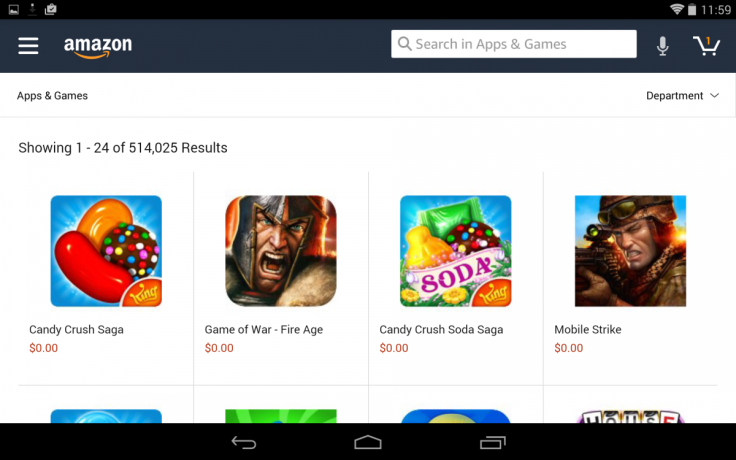Amazon must refund parents for unauthorised in-app purchases, rules US federal judge

A US federal court judge has ordered Amazon to refund parents who have been stuck paying for unauthorised in-app charges incurred by their children since 2011, especially since the apps are marketed as being "free".
In a partial summary judgement (redacted) on a case first filed by the Federal Trade Commission (FTC) against Amazon in July 2014, Judge John C Coughenour of the District Court of the Western District of Washington has ruled that Amazon is liable for unfairly billing consumers for unauthorised in-app purchases by children, because the company had not been transparent enough about the possibility that there might be charges within the apps themselves.
Amazon first started offering mobile apps, with in-app purchases, on the Amazon Appstore in November 2011 for Kindle Fire tablets and Android devices and Amazon keeps 30% of any revenue generated from in-app sales. Initially, in-app purchases did not require any approval by the Amazon account holder or the need to enter any password, unless the customer specifically went into the settings of the Appstore to turn on parental controls.
Eventually, over time and following multiple complaints from customers, Amazon started introducing password prompt features, at first asking for a password to be entered for purchases of over $20 (£14, €17.64 ) in 2012, before making password entry a requirement for all first time in-app purchases on Kindle Fire tablets in May 2013. In June 2013, Amazon finally enabled customers to select whether they would prefer to require a password for all in-app purchases and not just the first one they download.
Calling an app "free" when it's not
The FTC also presented evidence that on the app detail pages in the Appstore, the purchasing button simply read "Free" and did not acknowledge the existence of any in-app charges. In order to find out about any possible charges, the user would need to scroll down below the fold of the page and read several paragraphs within the Notes section, before locating the section on charges two-thirds of the way to the bottom of the page.
Although Amazon has made some efforts to make in-app purchases clearer, including adding the words to the app detail pages, as well as revising password prompts in 2014. The FTC argues that first generation Kindle devices are no longer being updated, meaning that consumers are still being billed for in-app purchases under $1, without authorisation, and that this shows that Amazon is still causing customers "substantial harm".
Unfortunately for Amazon, Judge Coughenour found that Amazon's billing practices around in-app purchases were indeed causing injury to consumers that was not "reasonably avoidable" between 2011 and 2014. The FTC and Amazon will now need to present evidence in order to work out how much Amazon should pay in damages.
The FTC has previously pursued both Apple and Google over unauthorised in-app charges incurred by children, reaching settlements that have resulted in consumers being refunded over $50m (£34.3m, €44m).
© Copyright IBTimes 2025. All rights reserved.






















